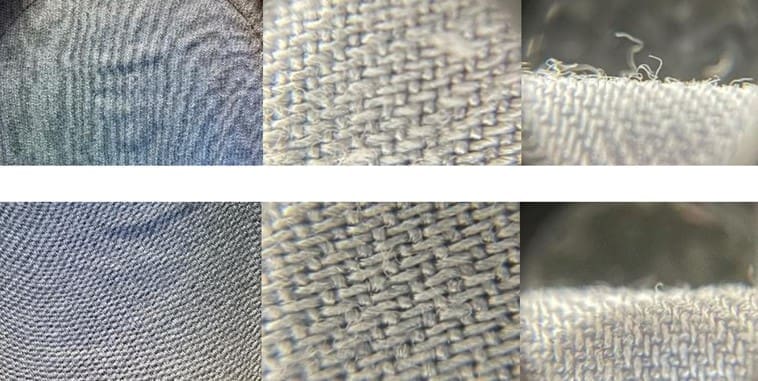Consumer and regulatory demands for more sustainable clothing and textiles are growing and the fashion industry is rising to the challenge. Now Novozymes offers biopolishing for manmade cellulosic fibers (MMCF) including viscose, modal and lyocell. This helps enhance the quality of fabrics, making them look new for longer and extending their lifespan.
COPENHAGEN, DENMARK – June 7, 2022 – MMCF is the third most used textile fiber in the world after polyester and cotton. Yet it lags behind polyester and cotton with a market share of around 6 percent, mainly caused by quality issues such as the fabrics developing fuzz and pills after only a few washes. This makes the garments look worn and impact consumers’ perception of quality and sustainability.

With Fiberlife® Novozymes offers a world-first family of biopolishing that minimizes fuzz and pilling in viscose, modal and lyocell. Biopolishing uses enzymes to remove loose fiber ends, leaving a clean, new-looking surface, which lasts for at least 60 washes. It can also improve print quality in daily wash and wear.
- “Alongside the choice of material, the garment’s active life is a key factor of its climate impact. With Fiberlife®, MMCF fabrics are given the wash and wear durability that consumers demand, prolonging the time the garments look and feel new. This is a better solution for the fashion and broader textile industry, consumers, and the planet,” says Dina Lipp, Global Marketing Manager at Novozymes.
Biopolishing for increased circularity

Circular fashion starts with sustainable production, free from waste, water pollution, emissions, and chemicals. Novozymes’ biodegradable enzymes support this by reducing the use of water and chemicals in the production.
- “At Novozymes, we want to create forward-thinking solutions for the textile and fashion industry. That is why we have been working intensively on making MMCF biopolishing possible for viscose, modal and lyocell. We see a big potential for textile manufacturers to extend the longevity of MMCF fabrics, ultimately offering consumers longer lasting garments made of fibers from nature,” says Pedro E. G. Loureiro, Global Business Development Manager at Novozymes.
Buying clothes that last longer is central to minimizing the environmental impact of the fashion industry. Fiberlife® can help textile producers improve on quality and sustainability while strengthening the connection towards a growing number of eco-conscious consumers.
The global nonprofit Textile Exchange is the driving force behind climate action on textile fiber and materials in the textile industry. Its new Climate+ Strategy aims to guide the fashion and textile industry towards CO2 reductions of 45% by 2030 while reducing water consumption.
MMCF fibers are sourced and produced mainly from renewable wood and can support the shift from oil-derived synthetic fibers. By extending the quality and lifespan of MMFC textiles, Fiberlife® can help the fashion industry to further reduce its environmental footprint.
How biopolishing works:
- Biopolishing is an environmentally friendly process that uses enzymes to extend the lifetime of cotton, viscose, modal and lyocell.
- Biopolishing uses enzymes to remove excess fibers from the fabric, leaving a clean surface. This improves dyeability and creates longer lasting textiles.
- The microfibrils that protrude from cellulose-based fibers are microscopic hairs from the fibers of these fabrics. They lead to fuzz and pilling, which makes the fabric surface feel rough and trap dirt to reduce cleanness. Both the trapped dirt and the microfibrils themselves make colors and whites look less bright.
- Textile mills polish cellulose-based fabrics before, during or after dyeing.

